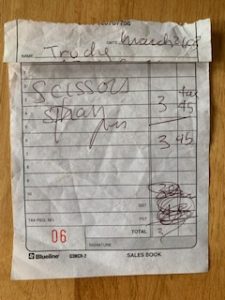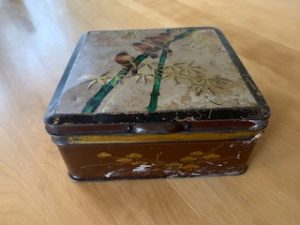
This past season was the first time many could celebrate the festive season somewhat freely with friends and family, so it felt extra special. But there is something of a relief in being back to what the church calls “ordinary time.” So much of our lives are lived in events as “prosaic as a hiccup,” Alice Munro would say.
My memories of the workaday world of punch clocks and turnstiles into factory and office have receded. The years of working have yielded their reward in retirement, so life is more leisurely. Nowadays, it’s usually seeing the school bus picking up neighbourhood children that prompts a beginning of the day’s chores.
And it is the simple stuff of our day to day existence that proves to be the real treasure. Once you take the hurry away, even a small routine like washing breakfast dishes can be savoured. There is time to sit down between tasks and ponder what to do next.
Even boredom has its place. That at-loose-ends Sunday afternoon years ago led to rooting around for something to do, which led to the keyboard being unearthed from its basement shelf. The love of music, lying dormant since childhood, awakened new potential years later.
Annie Dillard said that “how we spend our days is of course how we spend our lives.” 2023 is still mostly a blank page. May your life this year be blessed by all the “ordinary” things in your days.
The Power of Littles
Great events, we often find,
On little things depend;
And very small beginnings
Have oft a mighty end.
Letters joined make words
And words to books may grow.
As flake on flake descending
Form an avalanche of snow.
A single utterance may good
Or evil thought inspire;
One little spark enkindled,
May set a town on fire.
What volumes may be written
With little drops of ink?
How small a leak, unnoticed,
A mighty ship will sink?
A tiny insect’s labour
Makes the coral strand,
And mighty seas are girdled
With grains of golden sand.
A daily penny, saved
A fortune may begin.
A daily penny, squandered
May lead to vice and sin.
Our life is made entirely
Of moments multiplied,
As little streamers, joining
Form the ocean’s tide.
Our hours and days, our months and years,
Are in small moments given;
They constitute our time below –
Eternity in heaven.
Anonymous


 In the early 1960s, our school in Hamilton still furnished their classrooms with rows of old-fashioned wooden desks, attached to each other. They were marked up by decades of fidgety youngsters and leaky inkpots. When they were replaced by the newer, shinier individual desks, the old ones were stored in our barn for years, along with old milk cans and other stuff destined to be part of the antiques world some day.
In the early 1960s, our school in Hamilton still furnished their classrooms with rows of old-fashioned wooden desks, attached to each other. They were marked up by decades of fidgety youngsters and leaky inkpots. When they were replaced by the newer, shinier individual desks, the old ones were stored in our barn for years, along with old milk cans and other stuff destined to be part of the antiques world some day.
